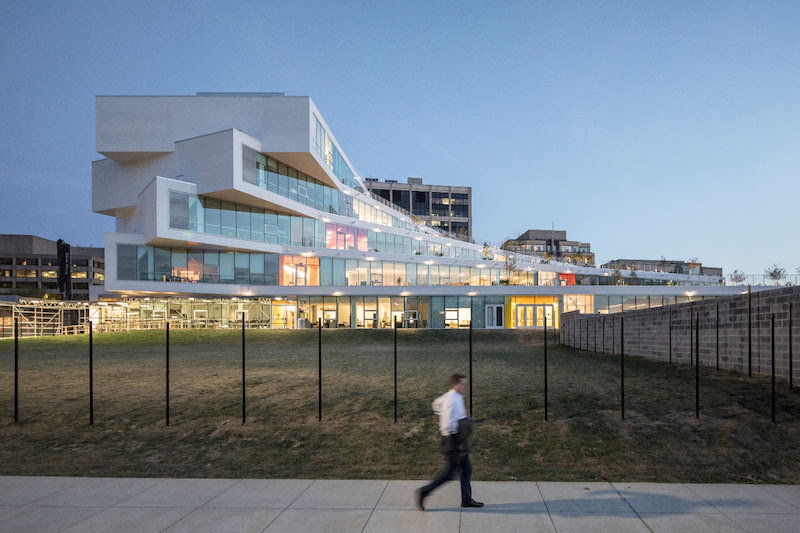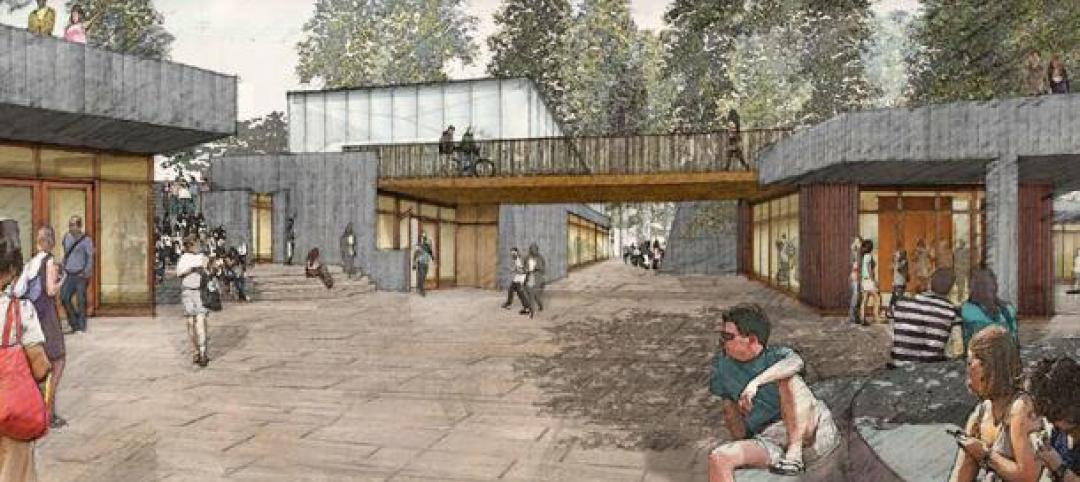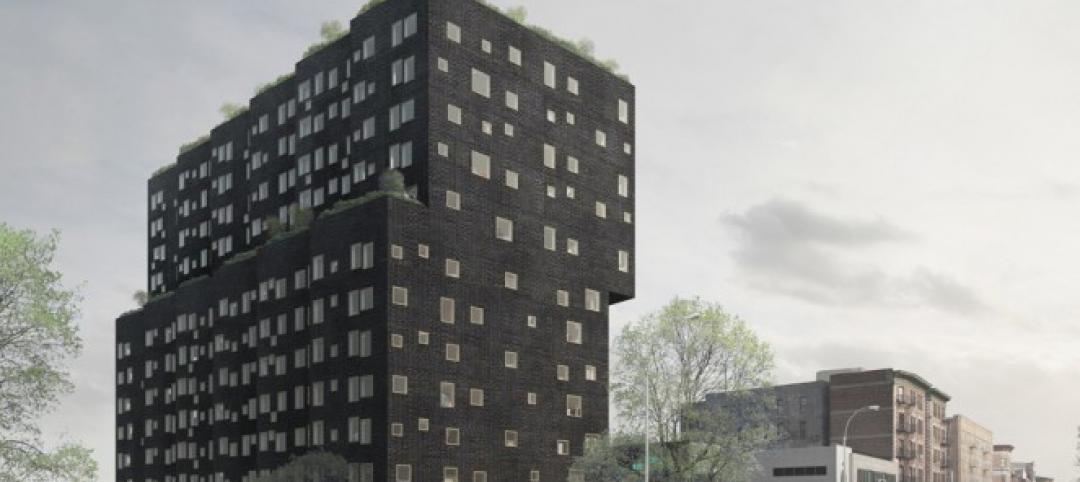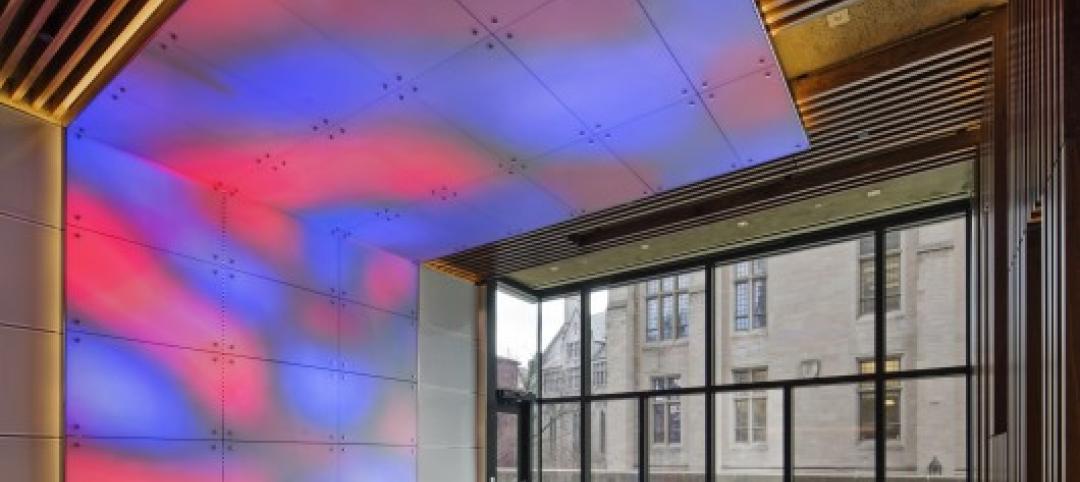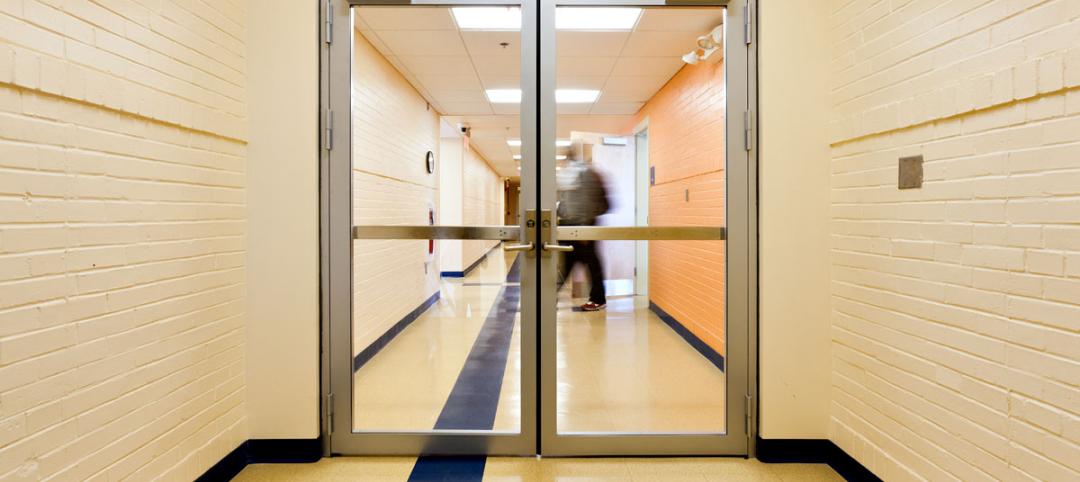The Heights, Bjarke Ingels Group’s first U.S. public school, merges two existing secondary schools (H-B Woodlawn and Eunice Kennedy Shriver) into one 180,000-sf building with space for up to 775 students.
The project, located in Arlington, Va., is situated on a compact site bounded by roads on three sides and a portion of Rosslyn Highlands Park. The Heights supports the visual and performing arts-focused curricula of H-B Woodlawn and the extensive resources for students with specialized educational needs of Enice Kennedy Shriver.
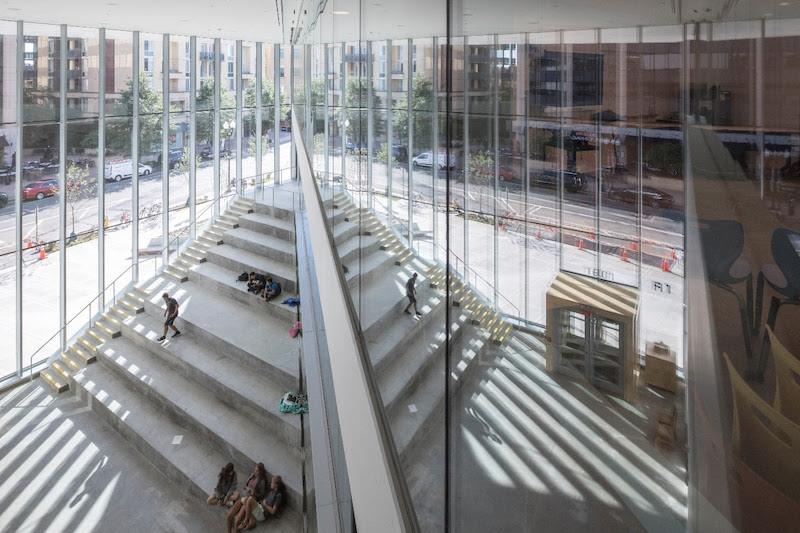
Students and staff are greeted by a triple-height lobby with stepped seating that doubles as an indoor gathering space for student assemblies and public gatherings. Adjacent to the lobby are many of the school’s common spaces including the 400-seat auditorium, main gymnasium, library, reception, and cafeteria. Other student spaces include an art studio, science and robotic labs, music rehearsal rooms, and two performing arts theaters.
See Also: Eight projects showcase the latest trends in student housing
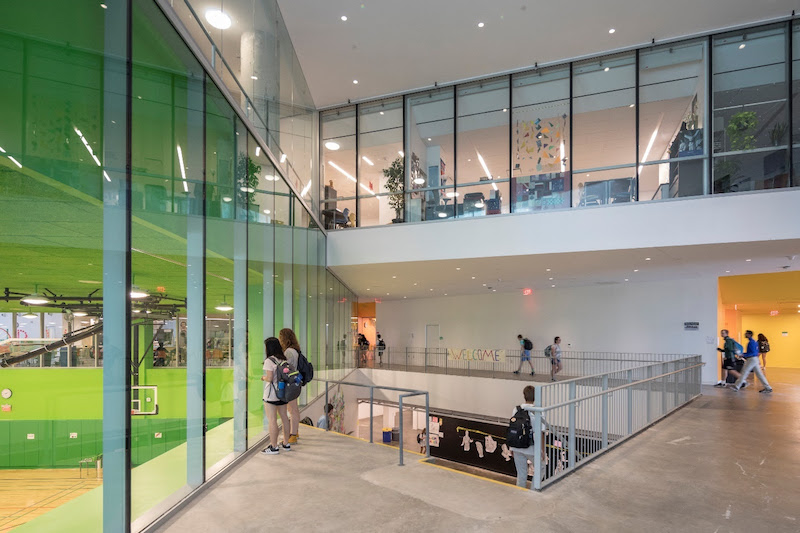
Classroom bars, each defined by its own color, are the primary organizing elements and surround a central vertical core that contains the elevators, stairs, and bathrooms. The Shriver Program occupies two floors of the building, which are accessible from the ground floor and have specialized spaces dedicated to support APS’ Functional Life Skills program as well as privacy and ease of accessibility. The gym, courtyard, occupational physical therapy suite, and sensory cottage are designed to aid in sensory processing.
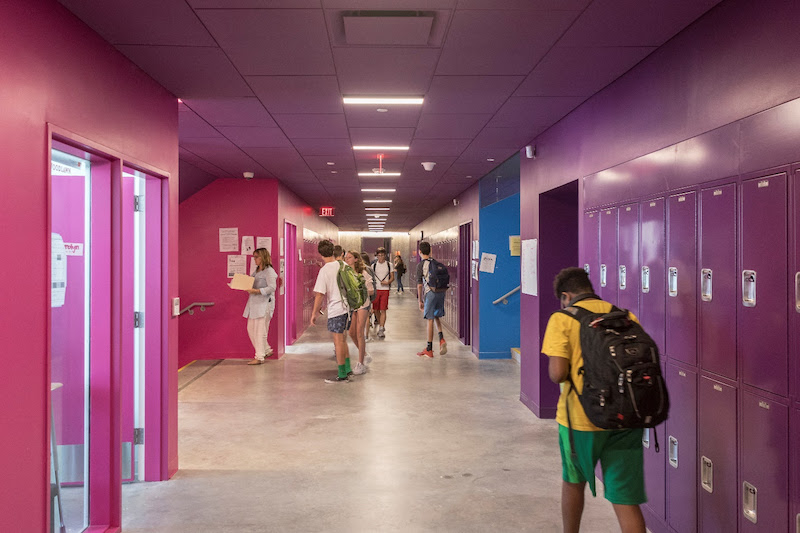
The building is conceived as a stack of five rectangular floorplates that rotate around a fixed pivot point, which creates a cascade of green terraces. The terraces become an extension of the classroom to create an indoor-outdoor learning landscape. The four tiered terraces are connected via a rotating central staircase that cuts through the interior of the building, allowing students to circulate outside. The upper terraces are suitable for intimate classes and quiet study areas while the spacious first terrace and the 18,700-sf recreation field serve as public event venues.
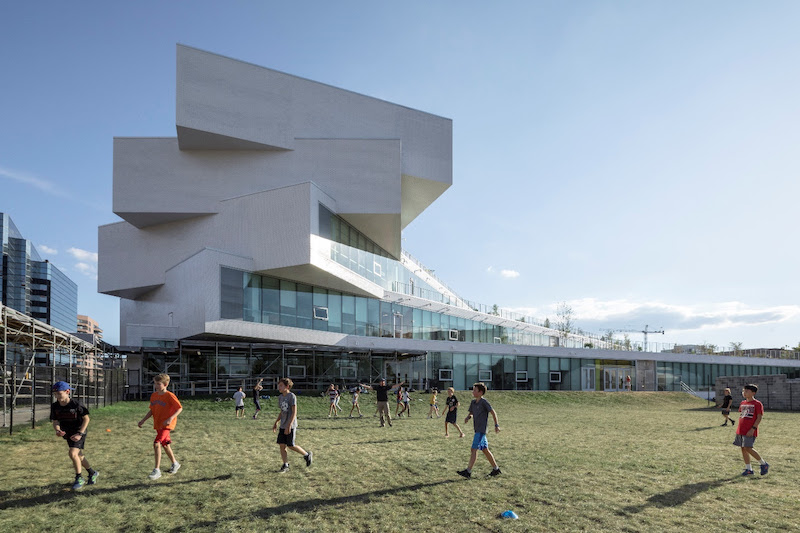
White glazed brick unifies the five volumes and highlights the oblique angles of the fanning classroom bars. The material palette pays homage to the historical architecture of Old Town Alexandria.
The Heights is on track to achieve LEED Gold. Bjarke Ingles Group designed the project with LEO A DALY as the executive architect.
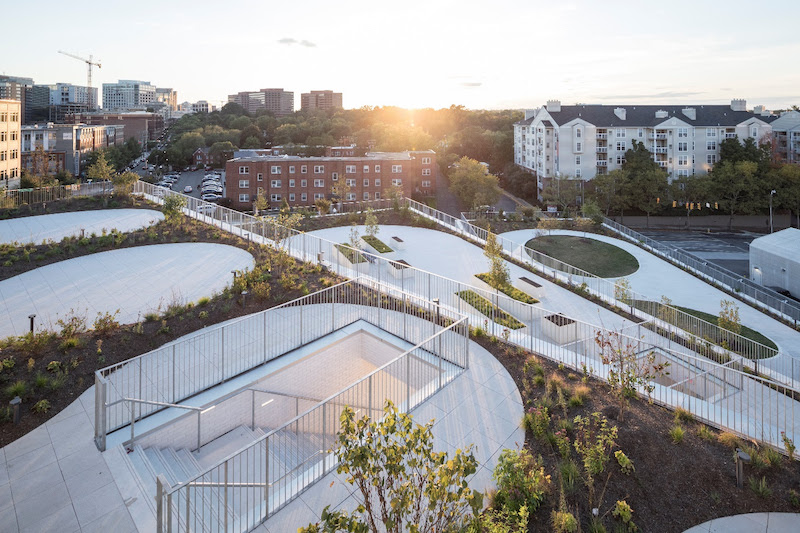
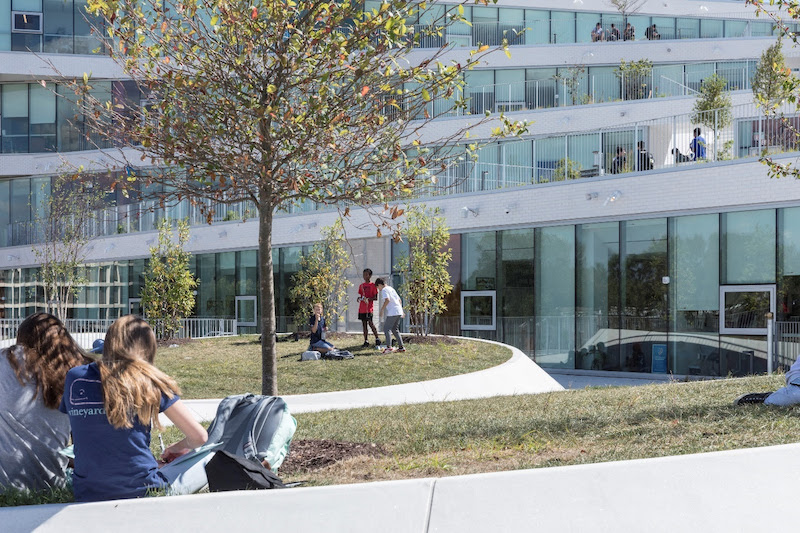
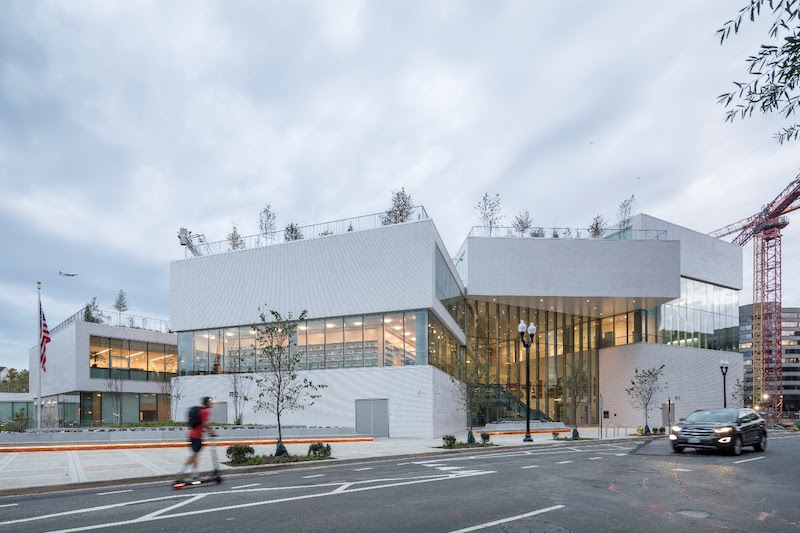
Related Stories
| Jun 16, 2014
6 U.S. cities at the forefront of innovation districts
A new Brookings Institution study records the emergence of “competitive places that are also cool spaces.”
| Jun 12, 2014
Zaha Hadid's 'gravity defying' Issam Fares Institute opens in Beirut
The design builds upon the institute’s mission as a catalyst and connector between AUB, researchers and the global community.
| Jun 12, 2014
Tod Williams Billie Tsien Architects' design selected for new UCSC facility
The planned site is a natural landscape among redwood trees with views over Monterey Bay, a site that the architects have called “one of the most beautiful they have ever worked on.”
| Jun 12, 2014
Austrian university develops 'inflatable' concrete dome method
Constructing a concrete dome is a costly process, but this may change soon. A team from the Vienna University of Technology has developed a method that allows concrete domes to form with the use of air and steel cables instead of expensive, timber supporting structures.
| Jun 11, 2014
David Adjaye’s housing project in Sugar Hill nears completion
A new development in New York's historic Sugar Hill district nears completion, designed to be an icon for the neighborhood's rich history.
| Jun 9, 2014
6 design strategies for integrating living and learning on campus
Higher education is rapidly evolving. As we use planning and design to help our clients navigate major shifts in culture, technology, and funding, it is essential to focus on strategies that help foster an education that is relevant after graduation. One way to promote relevance is to strengthen the bond between academic disciplines and the campus residential life experience.
| Jun 9, 2014
Green Building Initiative launches Green Globes for Sustainable Interiors program
The new program focuses exclusively on the sustainable design and construction of interior spaces in nonresidential buildings and can be pursued by both building owners and individual lessees of commercial spaces.
| Jun 9, 2014
10 projects named 2014 AIA Small Project Award winners
Yale's funky new Ground café and a pavilion made from 53,780 recycled plastic bottles are among the nation's best new small projects.
| May 29, 2014
7 cost-effective ways to make U.S. infrastructure more resilient
Moving critical elements to higher ground and designing for longer lifespans are just some of the ways cities and governments can make infrastructure more resilient to natural disasters and climate change, writes Richard Cavallaro, President of Skanska USA Civil.
Sponsored | | May 27, 2014
Grim Hall opens the door to fire safety with fire-rated ceramic glass
For the renovation of Lincoln University’s Grim Hall life sciences building into a state-of-the-art computer facility, Tevebaugh Associates worked to provide students and faculty with improved life safety protection. Updating the 1925-era facility's fire-rated doors was an important component of the project.


